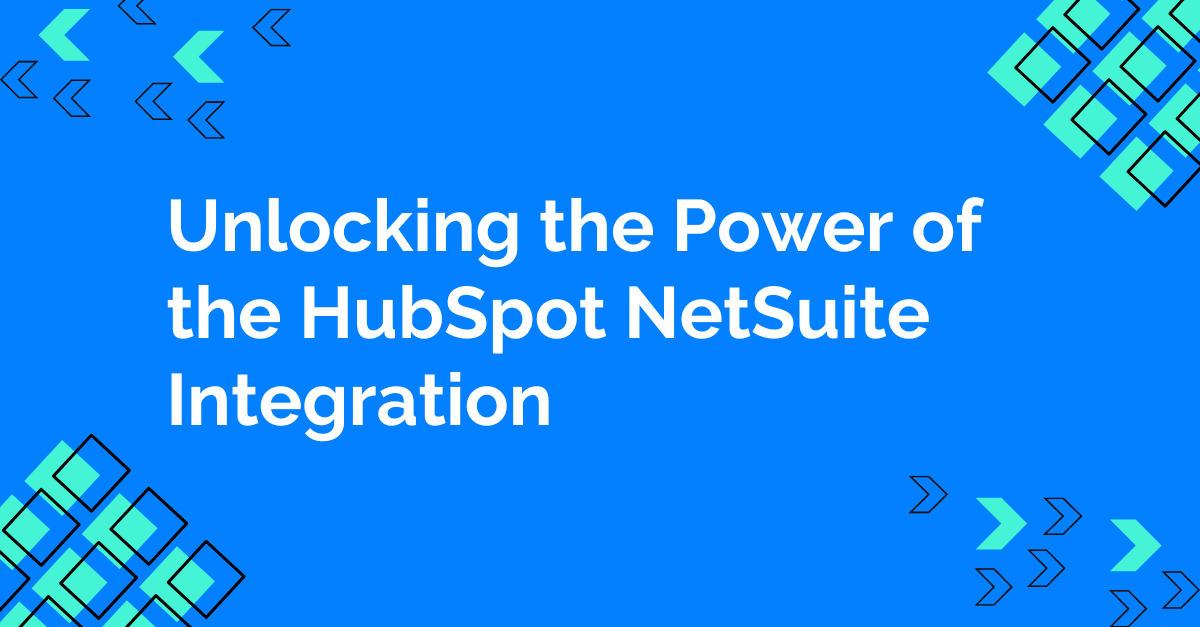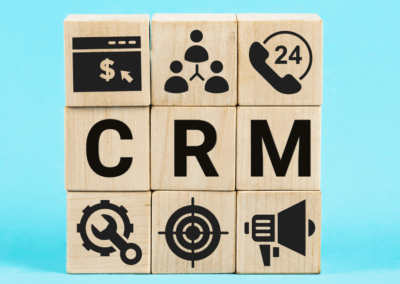In today’s competitive business landscape, integrating your Customer Relationship Management (CRM) and Enterprise Resource Planning (ERP) systems is essential to ensure seamless communication and data sharing between various departments. Combining the power of HubSpot, a leading CRM platform, and NetSuite, a comprehensive ERP solution, can help your organization unlock new levels of efficiency and growth. In this blog article, we’ll explore the benefits of the HubSpot NetSuite integration and some tips on how to implement it.
Overview of HubSpot and NetSuite
HubSpot: A Leading CRM Platform
HubSpot is a popular CRM platform designed to help businesses attract, engage, and delight customers. With its focus on inbound marketing, sales enablement, customer service, and content management, HubSpot enables organizations to build strong relationships with their customers and drive sustainable growth.
NetSuite: A Comprehensive ERP Solution
NetSuite is a cloud-based ERP solution that provides businesses with a unified platform to manage their core processes, including financial management, supply chain management, e-commerce and retail, and professional services automation. By streamlining these operations, NetSuite helps organizations optimize their resources and make data-driven decisions.
Benefits of a HubSpot NetSuite Integration
Streamlined Data Management
Integrating HubSpot and NetSuite ensures real-time data syncing between the two platforms, eliminating data silos and enabling teams to access accurate and consistent information. Additionally, this streamlines data management and improves overall business efficiency.
Enhanced Sales and Marketing Efficiency
HubSpot NetSuite integration empowers sales and marketing teams to collaborate effectively by providing them with a complete view of leads, customers, and transactions. This leads to improved lead generation, personalized marketing campaigns, and accelerated sales cycles.
Improved Customer Experience
A unified customer view resulting from the integration of HubSpot and NetSuite helps organizations deliver exceptional customer service. Teams can quickly resolve customer issues, engage customers proactively, and ultimately improve customer satisfaction and retention.
How to Integrate HubSpot and NetSuite
Pre-integration Considerations
Firstly, before integrating HubSpot and NetSuite, organizations should analyze their business processes. map and migrate data, and identify integration requirements to ensure a smooth and successful implementation.
Integration Methods
Integrating HubSpot and NetSuite can be done in various ways, each with its advantages and disadvantages. We’ll explore three main methods: custom-built integrations, third-party integration platforms, and integration through APIs.
Custom-built Integrations
Custom-built integrations involve creating a unique connection between HubSpot and NetSuite tailored to your organization’s specific needs. Furthermore, this approach requires in-depth knowledge of both platforms, as well as software development expertise.
Advantages:
- Highly customizable: Custom-built integrations can be tailored to address your organization’s unique requirements, ensuring a seamless connection between the two platforms.
- Scalability: As your business grows, custom-built integrations can be adapted and scaled to accommodate new requirements.
Disadvantages:
- High initial cost: Developing a custom integration requires significant upfront investment in development resources.
- Longer implementation time: Creating and deploying a custom integration can be a time-consuming process.
- Maintenance burden: Custom integrations require ongoing maintenance and updates to ensure compatibility with platform updates.
Example: A large manufacturing company with complex business processes may choose a custom-built integration to accommodate their specific needs, such as connecting their custom inventory management system in NetSuite with HubSpot’s marketing automation tools.
Third-party Integration Platforms
Third-party integration platforms, such as Celigo, Boomi, or Workato, provide pre-built connectors and integration templates for connecting HubSpot and NetSuite. These platforms simplify the integration process and often come with support and maintenance services.
Advantages:
- Faster implementation: Pre-built connectors reduce the time needed to integrate HubSpot and NetSuite.
- Lower development costs: Using an integration platform can be more cost-effective than developing a custom integration.
- Support and maintenance: Third-party platforms often provide ongoing support and maintenance services, ensuring that your integration remains up-to-date.
Disadvantages:
- Limited customization: Pre-built connectors may not offer the same level of customization as custom-built integrations, potentially limiting their ability to address specific business needs.
- Dependency on third-party vendors: Relying on an external platform may pose risks related to vendor stability, support, and platform updates.
Example: A medium-sized e-commerce company may opt for a third-party integration platform to quickly connect their HubSpot CRM with their NetSuite ERP to streamline order processing and customer communication.
Integration through APIs
Integrating HubSpot and NetSuite through APIs involves leveraging the platforms’ respective Application Programming Interfaces (APIs) to exchange data and communicate between the systems. Moreover, this method requires knowledge of both platforms’ APIs and the ability to write code that connects them.
Advantages:
- Flexibility: API-based integrations offer a high degree of flexibility, allowing you to design and implement custom workflows and data exchanges between HubSpot and NetSuite.
- Platform updates: APIs are generally maintained and updated by their respective platforms, reducing the maintenance burden on your organization.
Disadvantages:
- Technical expertise required: Integrating through APIs demands a strong understanding of both platforms’ APIs and coding skills.
- Complexity: API-based integrations can be complex, potentially requiring more time and resources to implement compared to third-party platforms.
Example: A marketing agency may use API-based integration to synchronize contact data between HubSpot and NetSuite, enabling them to provide tailored marketing campaigns and detailed analytics to their clients.
Implementation Tips and Best Practices
Selecting the right integration partner, ensuring data security and privacy, and regularly monitoring and updating integrations are crucial for a successful HubSpot NetSuite integration.
The benefits of HubSpot NetSuite integration are evident in the improved efficiency, streamlined data management, and enhanced customer experience it offers. Choosing the right integration strategy and partner is crucial to unlocking these benefits for your organization.
As businesses continue to evolve and adapt to the ever-changing market landscape, the HubSpot NetSuite integration can be a game-changer that helps organizations stay ahead of the competition. By exploring the possibilities of this powerful integration, your business can unlock new growth opportunities and deliver exceptional value to your customers.




